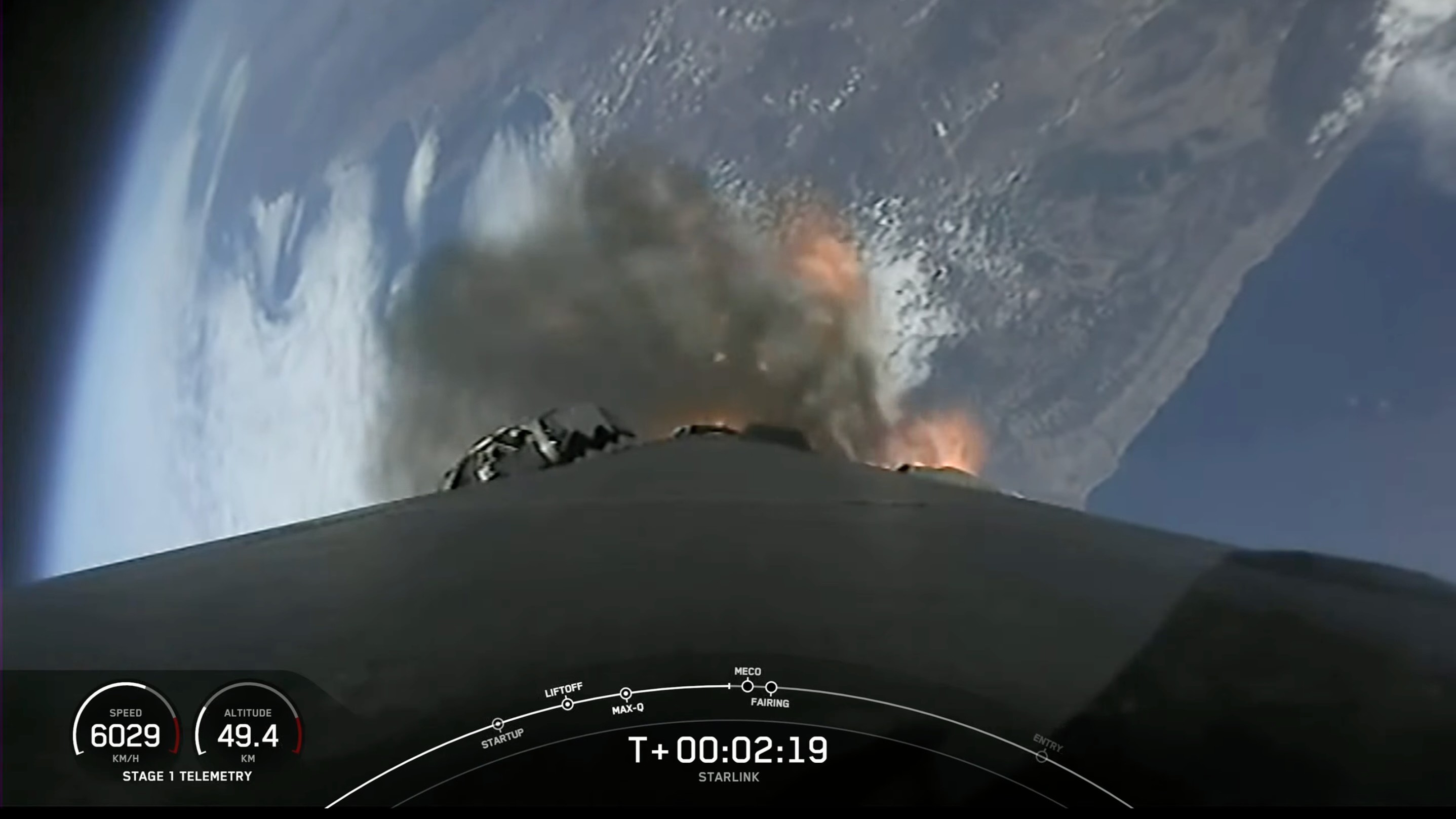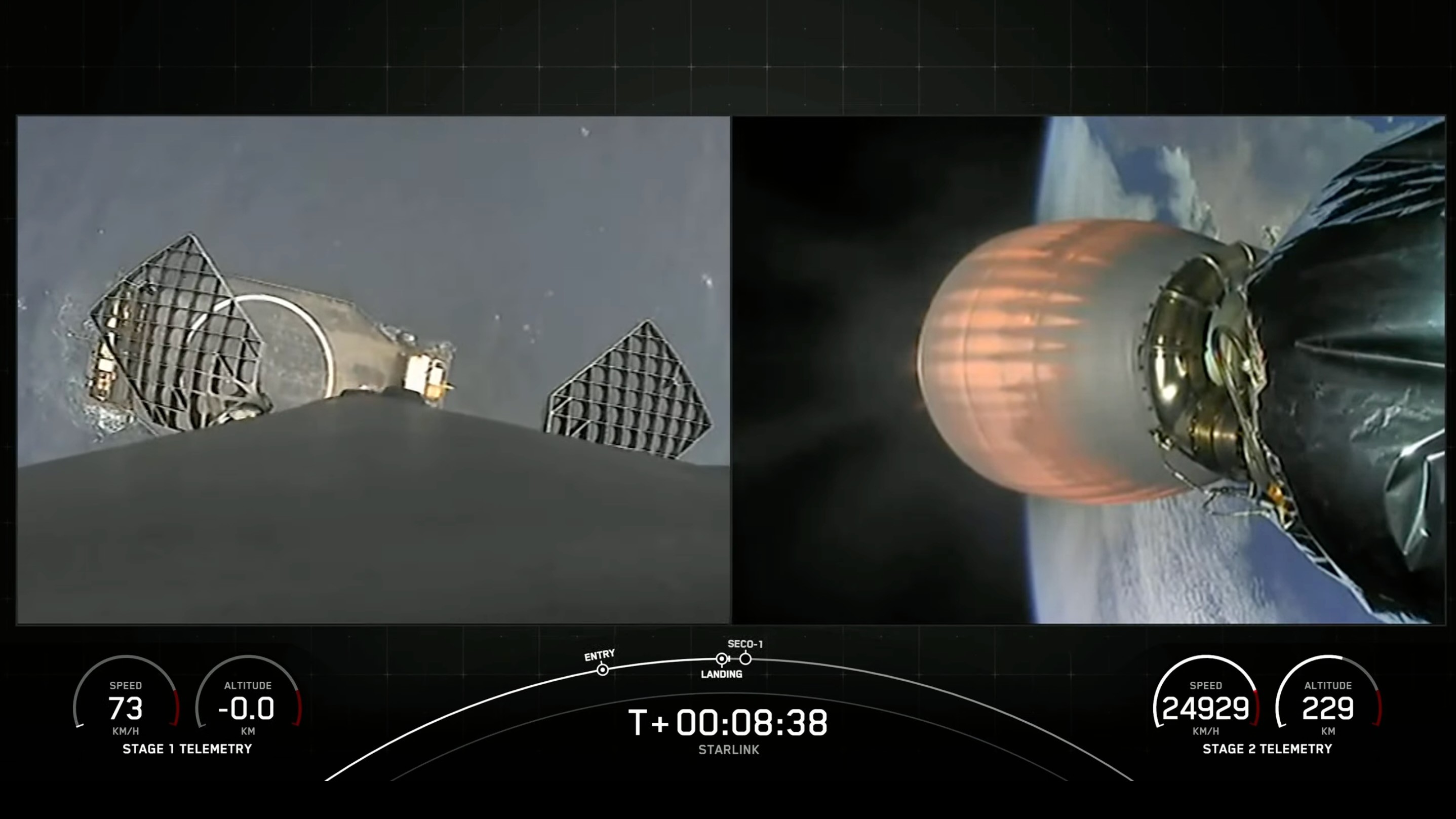SpaceX launched another big batch of its Starlink internet satellites to orbit today (July 7) and landed the returning rocket on a ship at sea.
A Falcon 9 rocket carrying 48 Starlink spacecraft lifted off from California's Vandenberg Space Force Base today at 3:29 p.m. EDT (1929 GMT; 12:29 p.m. local time), piercing a thick layer of fog on its way to the final frontier.
The rocket's first stage returned to Earth for a vertical touchdown on the SpaceX droneship Of Course I Still Love You, which was stationed in the Pacific Ocean. This milestone occurred about eight minutes and 50 seconds after liftoff.
Related: Starlink satellite train: How to see and track it in the night sky

It was the 12th launch and landing for this particular booster, SpaceX wrote in a mission description.
The Falcon 9's upper stage continued hauling the Starlink satellites to low Earth orbit (LEO). All of them are scheduled to be deployed there about 19 minutes after liftoff.

SpaceX has now launched more than 4,700 Starlink satellites, the vast majority of which are currently operational, according to astrophysicist and satellite tracker Jonathan McDowell.
Get the Space.com Newsletter
Breaking space news, the latest updates on rocket launches, skywatching events and more!
But many more Starlink batches will go up in the near future. The company has approval to deploy about 12,000 of the internet satellites in LEO, and it has applied for permission for another 30,000 on top of that.
The megaconstellation has drawn the ire of some astronomers, who say that its many satellites are hindering their observations.
The ever-growing network also poses a threat to space sustainability over the long haul, according to some experts. For example, Starlink satellites performed 25,000 collision-avoidance maneuvers in a six-month span recently, and that number is only going to go up as more and more spacecraft reach orbit.
Editor's note: This story was updated at 3:45 p.m. ET on July 7 with news of successful launch and rocket landing.
Join our Space Forums to keep talking space on the latest missions, night sky and more! And if you have a news tip, correction or comment, let us know at: community@space.com.

Michael Wall is a Senior Space Writer with Space.com and joined the team in 2010. He primarily covers exoplanets, spaceflight and military space, but has been known to dabble in the space art beat. His book about the search for alien life, "Out There," was published on Nov. 13, 2018. Before becoming a science writer, Michael worked as a herpetologist and wildlife biologist. He has a Ph.D. in evolutionary biology from the University of Sydney, Australia, a bachelor's degree from the University of Arizona, and a graduate certificate in science writing from the University of California, Santa Cruz. To find out what his latest project is, you can follow Michael on Twitter.









